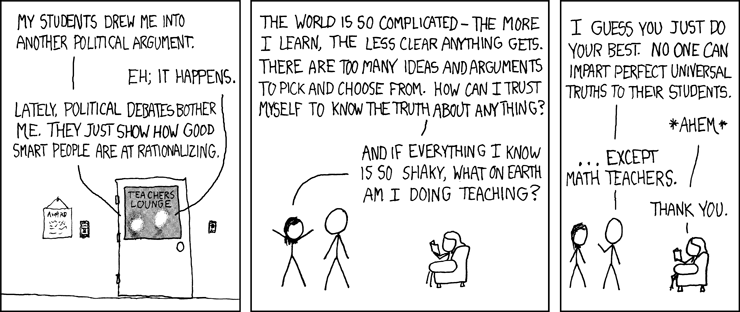
There is a widely accepted truth that learning in math is strictly hierarchical. Before children can learn how to factor polynomials, they have to first learn how to factor whole numbers. Before they can learn how to classify polygons, they have to learn what all the different types of triangles are. But this idea is false.
It is true that one will find factoring the polynomial x2+8x + 12 easier and faster to do if one knows the factors of 12 are 1, 2, 3, 4, 6, and 12. We might be able to say that knowing how to factor 12 is a prerequisite for factoring the polynomial x2+8x + 12. This is a much narrower version of hierarchical knowledge structure where with careful curriculum design one can deliberately select numbers for factoring polynomials that are known (or at least likely to be known) to students. It is well established that there are some multiplication facts that students find easier than others; if we restrict ourselves to only using the factorizations that children are more likely to be familiar with, then at least when introducing the idea of factoring polynomials, we offer a greater variety of children access to the ideas.
But it is also possible to continue to teach students how factor numbers while teaching them how to factor polynomials. First, we remember that it is likely that if a child reaches our classroom and does not know some idea from a previous year, they have unfinished or incomplete learning, not unstarted learning. We don’t need to introduce the idea from scratch; we can probably rely on relearning opportunities instead. Next, we can and should always embed opportunities for learning prior ideas in our teaching since students always come to us with varied understanding. This does not mean having the different goals for different students, rather that we know our aim is to reduce variance in student understanding and build a community of learners in doing so. (Aside: An excellent tool for supporting incomplete learning are the instructional routines described by Routines for Reasoning and the fine folks at the Teacher Education by Design project.)